Top 8 DevOps Programming Languages That You Must Know

As a DevOps engineer, having a strong command of programming languages is crucial for automating processes, collaborating effectively, and driving efficiency in software development. With the rise of DevOps methodologies, certain programming languages have emerged as the go-to choices for professionals in this field. In this blog post, we'll explore the top programming languages that every aspiring DevOps engineer should master.
Why DevOps a demanding career path?
DevOps is a highly sought-after career path due to the increasing demand for continuous development, integration, and deployment in software development. The DevOps job market is thriving, with a growing emphasis on cloud computing and automation. The role of DevOps engineers is becoming more complex and central to the IT ecosystem, making them one of the most sought-after professionals in the technology landscape.
According to LinkedIn, the global DevOps market was valued at USD 7395.04 Million in 2024 and will reach USD 27659.19 Million in 2031, with a CAGR of 24.59% from 2024 to 2031.
According to Glassdoor, the average salary for DevOps engineers is $1,38,686 annually in the United States. The average additional cash compensation for a DevOps Engineer in the United States is $25,237, ranging from $18,928 to $35,332. Salaries estimates are based on 14748 salaries submitted anonymously to Glassdoor by DevOps Engineer employees in the United States.
The demand for DevOps skills is accelerating, with a high demand for skilled professionals, competitive salaries, and career opportunities. Moreover, as companies increasingly adopt cloud technologies and microservices architectures, the skills of a DevOps engineer become even more critical.
As of the statistical report of DevOps discussed above, you would have understood the proliferating career for DevOps engineers. Now, we shall discuss a few top 10 DevOps programming languages.
What is DevOps?
DevOps is a methodology in the software development and IT industry that integrates and automates the work of software development (Dev) and IT operations (Ops) to improve collaboration and efficiency. DevOps is not a single tool or practice but a set of practices and tools that help organizations deliver applications and services at high velocity, enabling them to serve their customers better and compete more effectively in the market.
Top 10 DevOps programming languages:
1. Python
Guido van Rossum created Python, which was first released in February 1991.
Python is undoubtedly one of the most popular DevOps programming languages in the DevOps landscape. Its simplicity, versatility, and large community make it an excellent choice for building automation scripts, testing, and configuration management.
DevOps engineers have widely used Python for various tasks due to its versatility and ease of use. It is extensively used in different stages of the DevOps lifecycle, including planning, development, monitoring, and deployment.
DevOps engineers utilize Python for tasks such as automation, infrastructure as code (IaC) with tools like Ansible, SaltStack, and Terraform, monitoring and logging, integration with other tools like Jenkins, Git, and AWS, cloud automation, and extending DevOps tools like Docker Compose, Ambassador API Gateway, and Apache Libcloud.
2. Ruby
Ruby one of the Top DevOps Scripting Languages. It is dynamic, object-oriented programming language known for its simplicity and readability.
Ruby was introduced in the early 1990s by Yukihiro Matsumoto, also known as Matz.
Ruby is a dynamic and interpreted programming language that DevOps engineers commonly used to automate repetitive tasks in IT environments.
Due to its efficiency, it is widely used in web development, data science, and unit testing.
Ruby's extensive libraries, such as Net::HTTP and REXML, make it a powerful tool for DevOps tasks, including automation, monitoring, and deployment.
Additionally, Ruby is used in infrastructure automation for DevOps tools such as Chef, Puppet, and Ansible.
3. C/C++
C and C++ remain popular and powerful DevOps programming languages, but implementing modern DevOps practices can be more challenging compared to higher-level languages. Still, remains best DevOps Languages to Learn.
C++, created by Bjarne Stroustrup, first released in 1985
Paradigms and the C programming language were developed in 1972 by Dennis Ritchie.
C and C++ are widely used by DevOps engineers, particularly for projects that require high performance and efficient resource usage.
C and C++ can manage and reuse binaries, manage all binaries in a single repository or server, and use package managers like Conan to handle ABI compatibility issues.
Conan, a popular package manager for C and C++ projects, helps DevOps engineers manage dependencies and binaries, making building, testing, and deploying applications easier. Conan also supports binary compatibility, allowing DevOps engineers to build and distribute binaries for different platforms and configurations.
4. JavaScript
JavaScript is one of the top 8 Devops Programming Language. In DevOps, JavaScript is often used for building web applications, creating interactive dashboards, and automating deployment processes.
JavaScript was created in 1995 by Brendan Eich.
JavaScript is a lightweight programming language. It is used to build user-friendly websites, and many mobile app developers use this interpreted programming language to build cross-platform apps efficiently. Moreover, it is also used for desktop app and game development.
Many popular frameworks and libraries, such as React, Node, etc, are written in JavaScript.
Commonly used JavaScript tools by DevOps engineers include Node.js for server-side runtime, Webpack for bundling frontend assets, Express.js for building web applications, Jenkins Pipeline DSL for defining build pipelines, and Puppeteer for browser automation tasks.
5. PHP
PHP's versatility as a DevOps programming language allows it to be used for a wide range of DevOps tasks, from infrastructure management to application deployment, making it a cost-effective choice for automating various processes in a DevOps environment.
Rasmus Lerdorf released the first version of PHP on June 8, 1995. Since then, PHP has undergone several updates and releases, with the latest version being PHP 8.3, released on November 23, 2023.
PHP is utilized by DevOps engineers for various tasks, especially in web development and automation processes.
In DevOps, PHP is commonly used for scripting tasks, web development, and enhancing platforms like WordPress. DevOps engineers leverage PHP for tasks such as creating web applications, automating repetitive processes, and developing complex applications.
Additionally, PHP tools like Zend Studio, XAMPP, and New Relic are popular among DevOps engineers for enhancing PHP development, monitoring application performance, and debugging code efficiently.
6. Go
Go, also known as Golang, is a statically typed, compiled programming language developed by Google. It is designed for simplicity, efficiency, and concurrency, making it one of the best DevOps programming languages. Additionally, for scripting in DevOps, GO stands out as one of the top scripting languages due to its versatility, ease of use, and extensive libraries.
Go was first released in March 2012 as version 1.0 of the Go language.
Go is popular for DevOps and cloud projects. Go is known for its simplicity, stability, and speed, making it a good choice for fast-paced DevOps environments that require concise and maintainable codebases.
Go libraries that DevOps engineers commonly use include the standard library, which provides a wide range of tools for working with files, networks, and processes.
Cobra is great for making command-line interfaces, and Terraform helps you build, change, and manage infrastructure easily. Go also has a bunch of third-party libraries for Kubernetes, Docker, and other DevOps tools.
7. Java
Java is a popular choice for building enterprise-level applications and infrastructure, especially among DevOps engineers programming language. It is known for its scalability, performance, and cross-platform compatibility. Frameworks like Spring Boot and Dropwizard have made it easier to build Java-based DevOps tools and applications, contributing to its reputation as one of the top scripting languages for DevOps.
Java was officially released to the public on May 23, 1995, by Sun Microsystems.
DevOps engineers often use Java to build and manage large-scale, distributed systems and scripts to automate repetitive tasks.
Popular Java tools used by DevOps engineers include Jenkins, Maven, Gradle, Git, and Docker. These tools streamline workflows, automate repetitive tasks, and manage large-scale, distributed systems.
By choosing the right tools and using them effectively, Java developers can improve their productivity, reduce errors, and deliver high-quality software faster and more efficiently.
8. SQL
SQL's versatility allows it to be used for a wide range of DevOps tasks, from infrastructure provisioning to data processing, providing a standardized way to interact with and manage database systems, a crucial component in most modern applications. When considering the Top 8 DevOps Programming Languages, SQL often plays a foundational role due to its widespread adoption and essential role in managing data and infrastructure effectively.
SQL allows DevOps engineers to manage the databases that applications rely on directly. This means creating, configuring, and maintaining them, ensuring smooth operation and user access.
DevOps is all about efficiency. SQL empowers engineers to analyze database information to identify system issues, bottlenecks, and trends. These insights guide better decisions for software deployments and improvements.
As systems evolve, DevOps engineers can leverage SQL for automation. They can write complex queries and scripts to integrate new features with databases or migrate data seamlessly. This extends to Infrastructure as Code (IaC) tools, where SQL can be used to automate database provisioning and configuration.
Four quick steps to become a DevOps Engineer
To become a DevOps engineer, follow these four quick steps:
Learn Programming Languages: DevOps engineers need to understand programming languages like Go, Ruby, Python, and Node.js. These languages are essential for integrating databases, debugging code, and automating processes.
Study Operating Systems: Operating systems like Linux, Unix, and Windows are crucial for DevOps engineers to learn. Understanding the command line terminal is necessary to configure servers and applications.
Master DevOps Tools: DevOps engineers should master major DevOps tools like cloud platforms, automation tools, containers, monitoring tools, and CI/CD tools. These tools are essential for automating processes, deploying applications, and monitoring infrastructure.
Build Hands-On Projects: To gain practical experience, build hands-on projects that incorporate the skills and tools learned in the previous steps. This will help you gain real-world experience and demonstrate your expertise to potential employers.
By following these four quick steps, you can become a DevOps engineer and start a fulfilling and rewarding career in the tech industry.
Which programming language is best for a DevOps Engineer?
DevOps is a methodology that integrates software development and IT operations to improve collaboration, communication, and continuous improvement. Having proficiency in any one or more than one programming language would be a better choice for DevOps engineers.
If you choose Python, it is one of DevOps engineers' most suitable scripting languages due to its versatility, compatibility across many platforms, and extensive libraries for automation, scalability, and integration with various tools and frameworks.
On the other hand, Ruby is also suitable for building web services and creating APIs. The choice of programming language depends on the kind of projects DevOps engineers want to work on and their familiarity with the language.
In conclusion, the DevOps landscape relies on a diverse array of programming languages to build the tools and automation frameworks that drive efficiency, collaboration, and innovation. Python's versatility and extensive libraries make it a go-to choice for scripting and automation tasks. Shell scripting remains essential for Unix-like environments, facilitating system configuration and orchestration. JavaScript, particularly with Node.js, powers web-based DevOps interfaces and utilities, while Go's performance and concurrency features are increasingly favored for building scalable, efficient tools and microservices. Ruby continues to excel in configuration management, while Java provides the robustness and scalability required for enterprise-grade tools. Groovy and PowerShell offer specialized capabilities for scripting within specific environments. Each of these languages plays a vital role in enabling organizations to implement DevOps practices effectively, driving agility, reliability, and innovation across the software development lifecycle.
Find a course provider to learn Python
Java training | J2EE training | J2EE Jboss training | Apache JMeter trainingTake the next step towards your professional goals in Python
Don't hesitate to talk with our course advisor right now
Receive a call
Contact NowMake a call
+1-732-338-7323Take our FREE Skill Assessment Test to discover your strengths and earn a certificate upon completion.
Enroll for the next batch
Python Programming Hands-on Training with Job Placement
- Feb 5 2026
- Online
Python Programming Hands-on Training with Job Placement
- Feb 6 2026
- Online
Related blogs on Python to learn more
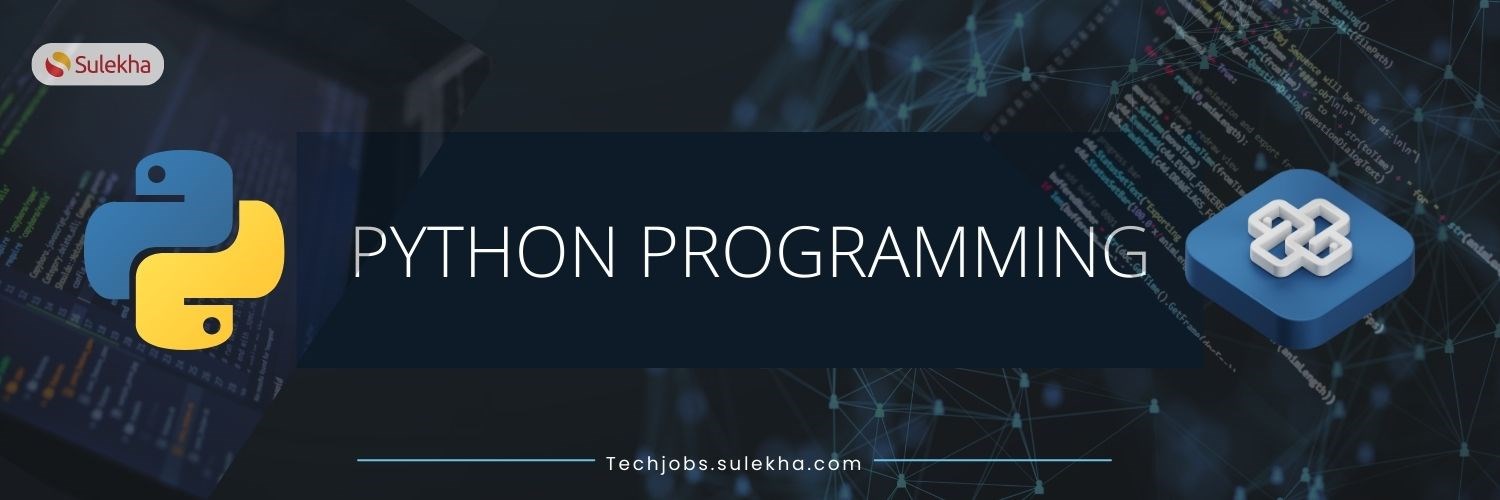
PYTHON PROGRAMMING
Discover Python, a versatile programming language ideal for web development, data analysis, and machine learning. Learn its easy syntax and extensive libraries to unlock a world of career opportunities in tech.
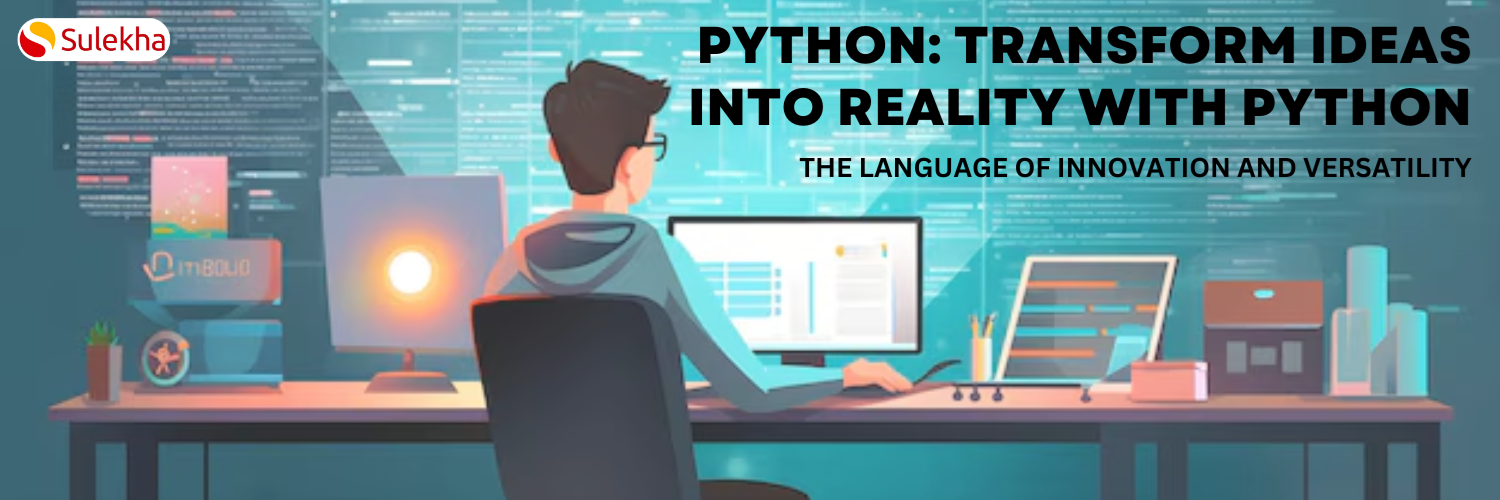
Python: The Language of Innovation and Versatility
"Master Python with Sulekha Tech Courses and boost your tech career. Find expert-led training in the USA and Canada for roles like Data Scientist and Machine Learning Engineer, and start your journey to innovation today."
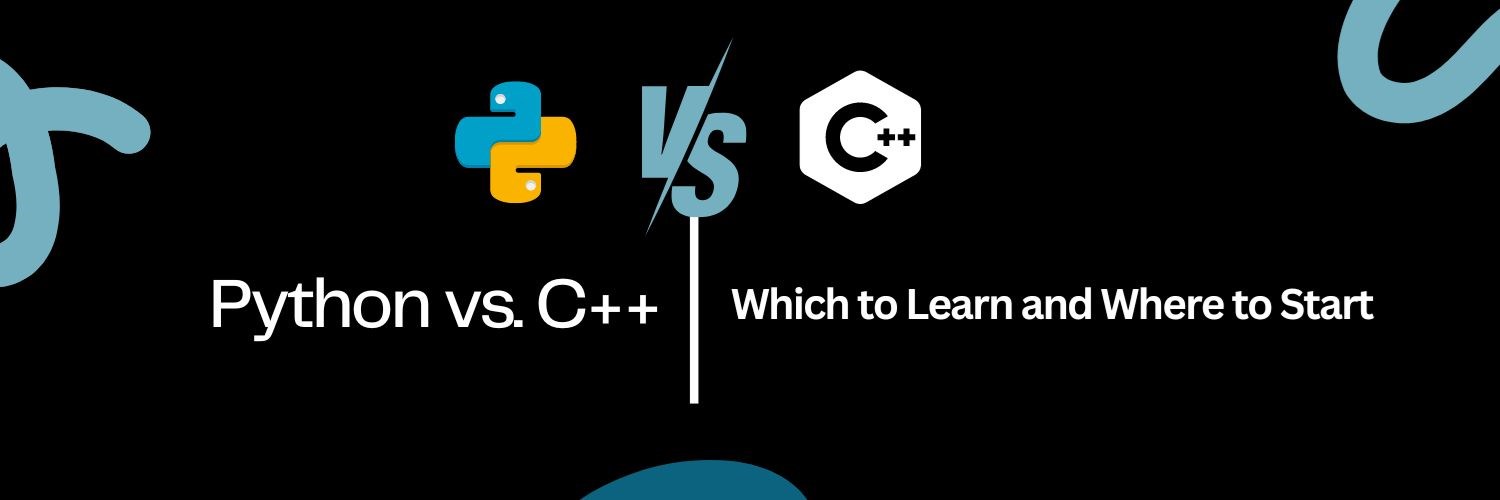
Python vs. C++: Which to Learn and Where to Start
Compare Python and C++ programming languages, learn which language is best for your needs and where to start your programming journey, with tips on getting started and resources for further learning.
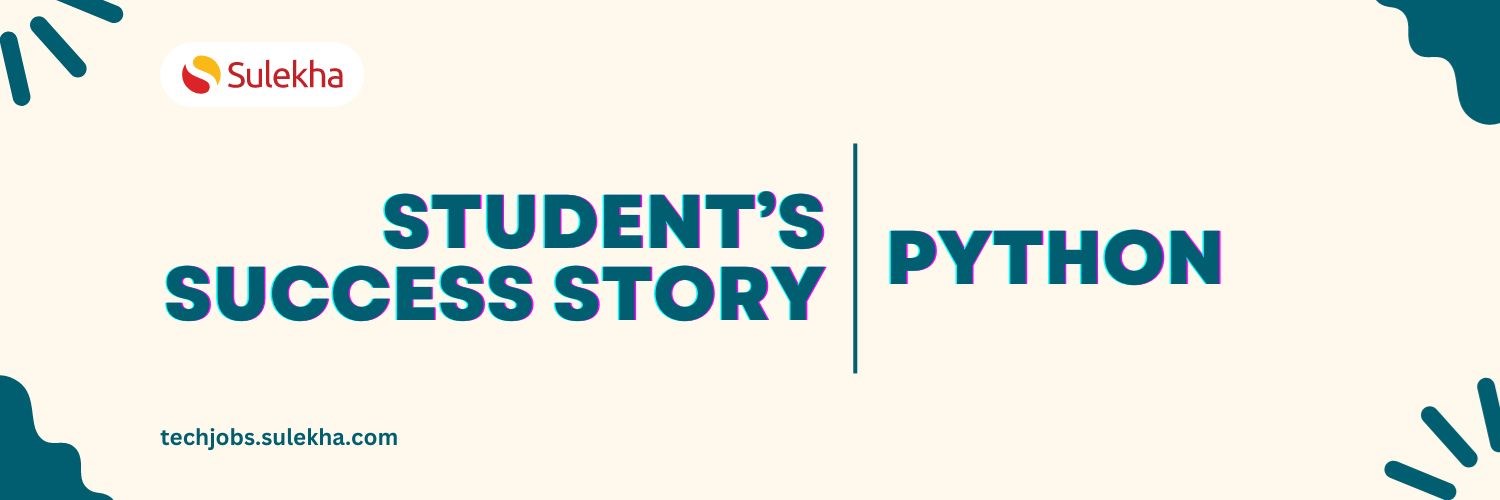
How did I successfully complete Python course?
Embark on a journey of student’s success story in Python programming, uncovering stories of resilience, growth, and achievement. Be inspired by their transformative experiences, unwavering dedication, and remarkable successes in mastering Python and
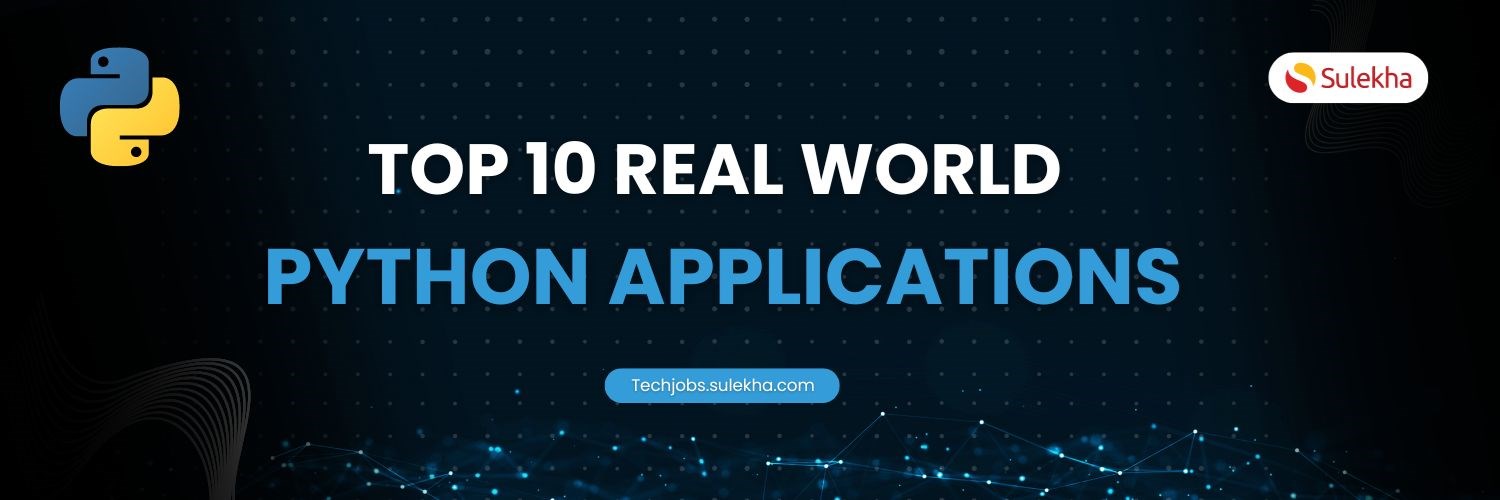
What are the top 10 Python Applications in the Real World?
Discover the top 10 Python applications transforming the real world across web development, audio and video Applications, business applications data science, game development, and more.
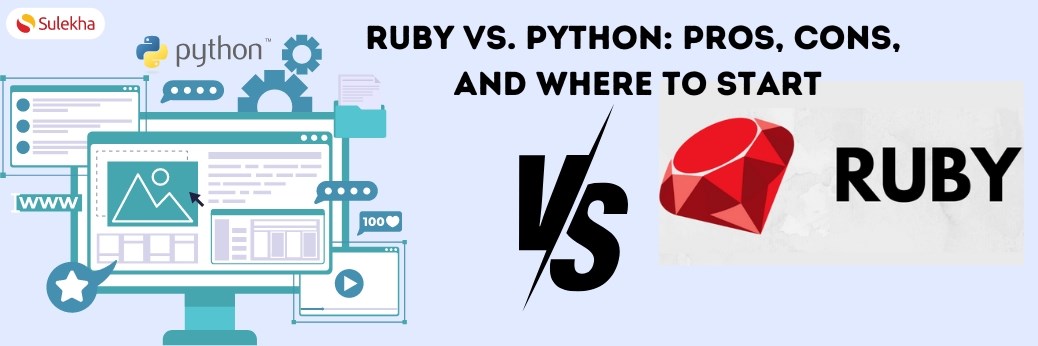
Ruby vs. Python: Pros, Cons, and Where to Start
Ruby vs. Python: Pros, Cons, and Where to Start Learning a programming language is helpful as it opens up numerous career prospects in the ever-growing technology field. Whether it is software development, web development, data science, or artificia
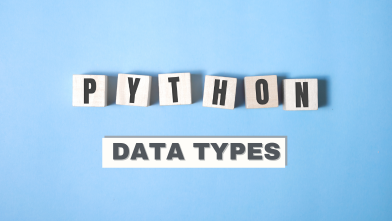
Data Types in Python for Data Science Applications
Python is a multipurpose programming language that finds applications across various domains. Its simplicity and flexibility make it a popular choice for web development, where frameworks like Django and Flask enable the creation of dynamic websites.
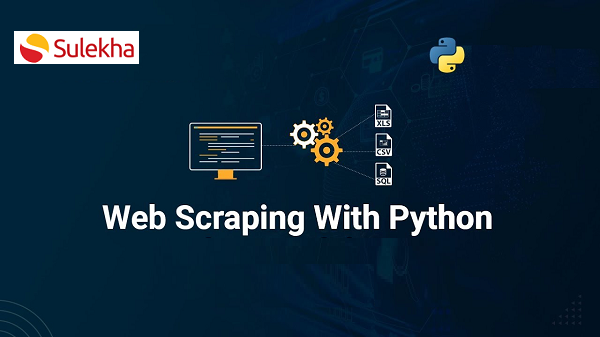
How to Build a Data Web Scraper Tool with Python
Web scraping involves processes to extract data from websites. This process is often performed using software that can simulate a user's actions on a website.
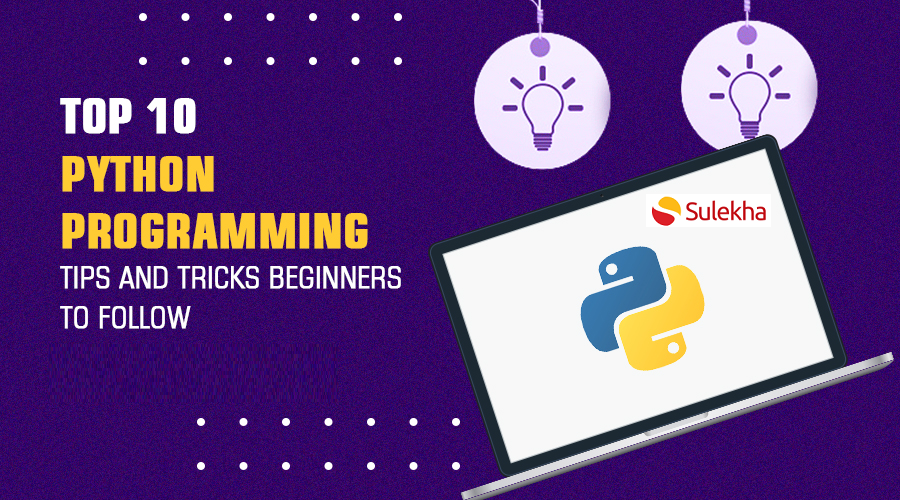
10 Python Tips and Tricks for Efficient Coding
Introduction
Latest blogs on technology to explore

Drug Safety & Pharmacovigilance: Your 2026 Career Passport to a Booming Healthcare Industry!
Why This Course Is the Hottest Ticket for Science Grads & Healthcare Pros (No Lab Coat Required!)" The Exploding Demand for Drug Safety Experts "Did you know? The global pharmacovigilance market is set to hit $12.5B by 2026 (Grand View Research, 202

Launch Your Tech Career: Why Mastering AWS Foundation is Your Golden Ticket in 2026
There’s one skill that can open all those doors — Amazon Web Services (AWS) Foundation

Data Science in 2026: The Hottest Skill of the Decade (And How Sulekha IT Services Helps You Master It!)
Data Science: The Career that’s everywhere—and Nowhere Near Slowing Down "From Netflix recommendations to self-driving cars, data science is the secret sauce behind the tech you use every day. And here’s the kicker: The U.S. alone will have 11.5 mill

Salesforce Admin in 2026: The Career Goldmine You Didn’t Know You Needed (And How to Break In!)
The Salesforce Boom: Why Admins Are in Crazy Demand "Did you know? Salesforce is the 1 CRM platform worldwide, used by 150,000+ companies—including giants like Amazon, Coca-Cola, and Spotify (Salesforce, 2025). And here’s the kicker: Every single one

Python Power: Why 2026 Belongs to Coders Who Think in Python
If the past decade was about learning to code, the next one is about coding smarter. And in 2026, the smartest move for any IT enthusiast is learning Python — the language that powers AI models, automates the web, and drives data decisions across ind

The Tableau Revolution of 2025
"In a world drowning in data, companies aren’t just looking for analysts—they’re hunting for storytellers who can turn numbers into decisions. Enter Tableau, the #1 data visualization tool used by 86% of Fortune 500 companies (Tableau, 2024). Whether

From Student to AI Pro: What Does Prompt Engineering Entail and How Do You Start?
Explore the growing field of prompt engineering, a vital skill for AI enthusiasts. Learn how to craft optimized prompts for tools like ChatGPT and Gemini, and discover the career opportunities and skills needed to succeed in this fast-evolving indust

How Security Classification Guides Strengthen Data Protection in Modern Cybersecurity
A Security Classification Guide (SCG) defines data protection standards, ensuring sensitive information is handled securely across all levels. By outlining confidentiality, access controls, and declassification procedures, SCGs strengthen cybersecuri

Artificial Intelligence – A Growing Field of Study for Modern Learners
Artificial Intelligence is becoming a top study choice due to high job demand and future scope. This blog explains key subjects, career opportunities, and a simple AI study roadmap to help beginners start learning and build a strong career in the AI

Java in 2026: Why This ‘Old’ Language Is Still Your Golden Ticket to a Tech Career (And Where to Learn It!
Think Java is old news? Think again! 90% of Fortune 500 companies (yes, including Google, Amazon, and Netflix) run on Java (Oracle, 2025). From Android apps to banking systems, Java is the backbone of tech—and Sulekha IT Services is your fast track t